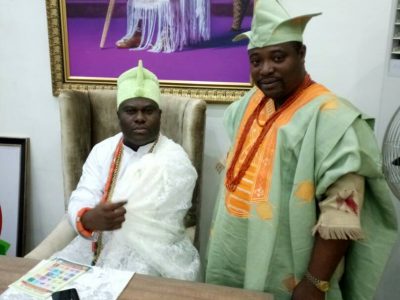
イーサン・ザッカーマン。写真はウィキメディア・コモンズのライセンスより、自由に利用可能。(CC BY 2.0)
グローバル・ボイスの共同創立者イーサン・ザッカーマンは、テクノロジー専門家であり、マサチューセッツ大学アマースト校教授である。1989年の幕開けから長い歴史を経てきたインターネットの世界において、彼は著名な人物だ。ザッカーマンは2014年、「皆さまへのお詫び―業務引き受けに疑問を持たなかったために生じた失態に関して(原題:A Public Apology on Screwing Up by Not Questioning Assumptions)」と題する真摯な謝罪文を発表し、大いに議論を呼んだ。彼は、1990年代初頭に非常に人気のあったTripod.comというウェブサイトの運営会社に当時勤務しており、収益を上げるためにポップアップ広告を考案した。これは世の嫌われものとなり、ザッカーマンはこの発明における自身の役割について振り返った。
このときに得た経験と、誰しも自由に発言し声を届ける権利があるという信念のもとに、グローバル・ボイスは誕生した。グローバル・ボイスでは約20年に渡って世界中のニュースや地政学的な動向、そして人々の物語を記録してきた。現在、このメディア・プラットフォームは、世界中の数多くのコミュニティやさまざまな言語から寄せられたニュース、リサーチ、心を動かす物語などが集約されたハブとなっている。その多くは既存の主流メディアでは隅に追いやられたり見過ごされてしまうような内容だ。ザッカーマンはジューク・キャロライナを聞き手に、この非営利の報道の場を発想した経緯やその理由を語った。
ジューク・キャロライナ(以下JC):グローバル・ボイスがどのように生まれたのか、着想から立ち上げまでの概要を教えてください。
Ethan Zuckerman (EZ): This was in the early 2000s, 2003, I think, or maybe 2004. Rebecca (MacKinnon) and I were both fellows at the Berkman Center. The Berkman Center was probably, at that point, the leading center in studying the internet and society. And Rebecca and I both were very interested in how the internet builds bridges between the Global North and the Global South. Or really between the US, Europe, and other nations. How could we use the internet, the possibility that people could speak and listen to each other in a new and in sort of unprecedented way, and actually use it for global connection?
Rebecca is fluent in Mandarin and speaks some Cantonese, and has lived in China for a lot of her life. She lived there as a very young girl, so her Chinese (language) is excellent. She lived there as a reporter for CNN. So she was really interested in using the internet to understand what's happening in China, North Korea, and some other countries that we don't really learn a lot about. I spent my 20s and 30s in Sub-Saharan Africa (SSA). I went to Ghana as a Fullbright Scholar when I was 20 years old. I ran an NGO called Geek Corps, which did work on technology volunteering, all throughout SSA. And I was interested in (the question) “could the internet build bridges between the people in SSA and the rest of the world?”
A big thing that was going on in the early 2000s was the rise of weblogs. So you had lots of writers, maintaining their own websites, writing a couple of times per week/ a couple of times per month about what was going on in local politics, and local society, and Rebecca and I started compiling lists of blogs we thought were terrific. There was a bloggers conference hosted at Harvard University, and Rebecca mostly, it was mostly her work, organized an international track to that conference. And we invited friends from all over the world to come to be part of it. And we had people from the Middle East, Sub-Saharan Africa, Asia, lots of bloggers who we’ve had read but we had never met in person. And we had so much fun hanging out together at Harvard, that we concluded that we had to do something. And what we ended up doing was building a blog that was going to keep track of what was going on in all of these different conversations. So, we wrote a manifesto about the right to listen and to hear each other, and Rebecca and I started the work of maintaining a blog, a global voices blog that was trying to amplify voices from all over the world. What we realized very quickly was that it (keeping track of these different conversations) was way too big for two people and particularly too big for two Americans, it needed people in all parts of the world we were working with to be part of it.
イーサン・ザッカーマン(以下EZ):2000年代初頭のことです。確か2003年、あるいは2004年だったと思います。レベッカ(・マッキノン)と私は、ともにバークマン・センターの研究員でした。バークマン・センターは当時、インターネットと社会についての研究ではおそらく最先端を走っていました。私もレベッカも強い関心を抱いていたのは、グローバル・ノースとグローバル・サウスの間、あるいは米国、ヨーロッパ、その他各国との間を、インターネットを使って本当の意味でつないでいく方法でした。インターネットを使えば全く新しい方法で意思疎通ができます。これをどのように活用すれば、世界中で人々がつながる一助になるのだろうと考えていたのです。
レベッカは中国暮らしが長く、標準中国語を流ちょうに話し、広東語も少し話せます。中国で幼少時代を過ごしたので、現地の言葉は非常に上手です。以前はCNNのレポーターとして中国に住んでいました。だから、中国や北朝鮮をはじめ、我々があまり知らない国々での出来事を理解するのにインターネットを使いたいと強く思っていました。私自身は20代から30代にかけてサブサハラ・アフリカ地域(サハラ砂漠以南地域、SSA)で過ごしています。20歳の時、フルブライト奨学生としてガーナに行きました。グリーク・コープス(Greek Corps)というNGOを運営し、SSA地域全体を対象に技術ボランティア事業を行っていました。私が関心を持っていたのは、「インターネットはSSAに住む人たちとそれ以外の人たちとの架け橋になれるのか?」という疑問でした。
2000年代初頭の大きな出来事といえば、ウェブログ(ブログ)の興隆でした。書き手が大勢いて、それぞれが自身のウェブサイトを運営管理していて、地域政治や地域社会にまつわる出来事を週に数回や月に数回のペースで綴っていました。私とレベッカは、素晴らしいと感じたブログを集めたリストを作成し始めました。ハーバード大学の主催でブログ運営者が集まる会議が開催されました。この仕事は大部分をレベッカが行っていて、海外から参加者を会議へ招くための道筋を付けたのは、ほとんどが彼女の功績です。我々は、世界各国にいる友人にも声を掛けて会議に加わってもらいました。中東、サブサハラ・アフリカ地域、アジアから参加者が集まりました。これまで記事を読んだことはあっても直接会うことはなかった書き手たちも大勢いました。ハーバードで集まってともに過ごした時間は本当に楽しいもので、これで終わりにはできないという結論に至りました。我々は最終的に、さまざまな議論の渦中で何が起きているかを追跡するブログを立ち上げることになりました。マニフェスト(グローバル・ボイス宣言)の中で我々は、互いの意見に耳を傾け合い声を届け合う権利について書きました。世界中の(グローバル)声(ボイス)をさらに広げるブログを運営する仕事を2人で始めたわけですが、すぐに私たちの手には余ることに気付きました。多様な会話を追跡していくというこの仕事は、メンバー2人、特に私たちアメリカ人2人にはあまりに膨大過ぎたのです。このブログが対象とする世界中のあらゆる地域から、仲間を迎える必要がありました。
JC:レベッカさんとあなたとはタイプもバックグラウンドも全く違いますが、おふたりのつながりのきっかけと、協働しようと決断された理由を教えてください。
EZ: It’s a very good question. I think a big piece of it is that many Americans believe that what’s going on in our own country is the most interesting thing in the world. And that the rest of the world isn’t very interesting. Rebecca and I both thought differently. We’re much more interested in what’s going on in different parts of the world than what’s going on in the US.
At this particular point in blogging (history), the biggest thing was leftwing politics. And Rebecca and I weren’t interested in it. I think finding someone else who’s interested in technology but was not super interested in what the Americans were doing with it but rather interested in what's happening in other parts of the world, was a really interesting connection for both of us.
So I think we just very quickly saw in each other, someone who had a different view of what technology could do and what we might do with it. And that was a real transformative moment for both of us. So I think we just saw in each other, someone who wants to know more broadly about the world.
To date, many of the people who had the most success on Global Voices were what we called “Bridge Figures.” And there are, sort of, two traits of a Bridge Figure: First, a person who knows two cultures quite well. That’s the first qualification; you have to know at least two cultures well. Second, someone who is passionate about advocating your home culture. Global Voices embraced people who understand a country and culture from the inside and out, who are excited, proud, and willing to involve in thinking about it from outside of the country.
EZ:とてもよい質問ですね。私が思うには、多くのアメリカ人がアメリカでの出来事こそが世界で一番興味深く、アメリカ以外はつまらないと思っているからです。彼らは国外の出来事にはさして興味を持たないのです。私もレベッカも、このような考え方をしませんでした。私たちはアメリカ国内よりも、世界の色々な地域で起きていることのほうにずっと興味がありました。
ブログ史のこの時期には左派の政治的発言が多勢を占めていました。しかし、私もレベッカもこれには興味がありませんでした。アメリカ人がテクノロジーをどのように使うのかよりも、むしろテクノロジーと世界各地の出来事の両方に関心がある人をお互いに探していたのです。これが、私たちふたりの興味深いつながりのきっかけになりました。
つまり私たちはふたりともテクノロジーの可能性や利用法について、他の人たちとは見方が違う人間なんだとすぐに分かったのだと思います。これは私たちにとってまさに転換点でした。この人こそまさに世界をもっと広く知ろうとしている人だと、お互いに気づいたのだと思います。
これまでグローバル・ボイスで大成功した人の多くは「ブリッジ・フィギュア(架け橋の人)」と呼ばれています。ブリッジ・フィギュアには2つの特徴があるといえるかもしれません。まず1つ目は、2つの文化について十分な知識がある人物。つまり、少なくとも2つ以上の文化について精通していることが条件です。2つ目は、自身の母国文化を擁護することに情熱を傾けられる人物。グローバル・ボイスが大切にしているのは、ひとつの国と文化を徹底的に理解しようとする人です。国と文化を国外から見た視点で捉えることに楽しさを見い出し、誇りをもって、前向きに携われる人物です。
JC:2014年に、「皆さまへのお詫び–業務引き受けに疑問を持たなかったために生じた失態に関して」というブログ投稿をされましたね。業務行為に対して疑問を持つことがなぜ重要なのか、ぜひお聞かせください。
EZ: Let’s start by saying what that post was about. My history with the internet goes back quite far. I go on the internet in 1989, I was very active on the internet before the web. It was internet based on text based bulletin boards called UseNet. I started working on the web very early 1993, when it was just becoming a new standard. And by 1994, I was working for a company called Tripod.com, which was one big social media company on the web. And social media at that time was not Facebook or LinkedIn it was personal web pages. You can have your own personal homepage. And we hosted personal homepages of 18 million people. And that made it the most popular destination on the web. It was an expensive business. Paying for servers and disk spaces costs us hundreds of thousands of dollars monthly. And we needed to find a way to make money. The way to do that at that time was by advertising. But there was a problem with advertising which at that point, advertisers didn’t want to be on the same page with the user-generated content.
So they didn’t want to be on the same page as my home page. They worried that I might post controversial content. So I found a solution that involved associating an ad with a homepage but not putting it actually on the same page. I put it in a separate pop-up window. What this means is that I invented pop-up ads, which is something that’s really hated — I think justifiably hated. Like I think it is not a very good solution to the problem and a pretty miserable thing to encounter. But what I wrote about was this idea that I think these days we’ve discovered that the ad-supported internet is not very good for us if you support content through advertising, the temptation is to build content that’s more and more controversial, that works very hard to get clicks and page views, and that has unhealthy associations with it.
EZ:まず、この投稿の背景を説明しましょう。私とインターネットとの関わりは相当古いものです。1989年にインターネットの世界に踏み入れました。ウェブの登場より前のことで、私は非常に活発にインターネットに関わっていました。このインターネットはUseNetと呼ばれ、テキスト形式による掲示板の集まりでした。1993年の年頭、ちょうどウェブが新標準に変わり始めた時期に、ウェブも扱い始めました。1994年、私はTripod.comという企業で働いていました。これはウェブ上のソーシャルメディアを扱う大きな会社のひとつでした。当時のソーシャルメディアとはFacebookやLinkedInではありません。個人のウェブページ群です。Tripod.comは個人で自分のホームページを持つことができるサービスで、1800万人の個人ページをホスティングしていました。おかげで一番人気のウェブ閲覧先になりました。このビジネスには高額なコストがかかりました。サーバー代とディスク容量代で毎月10万ドルの出費です。収入源を考えなくてはなりません。この時代、収入源といえば広告でした。しかしこれには問題がひとつあって、ユーザーが作成したコンテンツと同じページ上に広告が表示されるのを当時の依頼主は嫌ったのです。
つまり、広告主はユーザーのホームページと同じページには掲載してほしくない。批判を受けるようなコンテンツをユーザーが投稿するのではないかと、広告主は心配しているのです。そこで私が見出だした解決策は、広告とホームページを関連付けるが、まったく同じページ上には表示しないというものでした。広告は別のポップアップウインドウに載せるのです。つまり、私がポップアップ広告を発明したわけですが、これは本当に嫌われ者になりました。嫌われるのも道理だと私も思います。なぜなら、この問題に対する解決策としてはあまり良いものではなかったと思うし、ポップアップ広告と遭遇するのは実にみじめなものだとも思うからです。ただ、私が(訳注:謝罪文のブログ投稿の中で)書きたかったのは次のような考えです。広告を出して援助するようなインターネットの仕組みはあまりいいものではないことが、最近わかってきたのではないでしょうか。コンテンツが広告で支えられていれば、そこには誘惑が生まれます。批判を招くようなコンテンツ作りが激化し、クリック数や閲覧回数を懸命に稼ごうとしたり、広告と不正な関わりを持つコンテンツを作ろうとするのです。
ザッカーマンは自分の誤りを率直に認め、もっと早く別のやり方を主張して不健全なオンライン広告行為に反対すべきだったと述べた。これはインターネット環境の進化に対する警鐘である。教授であり作家でもあるザッカーマンの洞察によって、現在のインターネット事業の仕組みを変える必要性が明らかになった。
EZ: If you’re trying to get as many page views as possible, you’re likely to favor highly controversial content, highly emotional content, content that make people angry, and so I wrote this confession because I think my mistakes all those years ago was not advocating for different business models. I should have pushed against targeted advertising and against this whole model that governs the contemporary internet. I just don’t think it’s very healthy.
EZ:可能な限り多くのページビューを稼ぐことを目指すのなら、強い批判を受けるようなコンテンツや、非常に感情的なコンテンツ、人々の怒りを誘うようなコンテンツの方が好ましく思いがちでしょう。だから、私はこの告白を書いたのです。なぜなら、かつて私が犯した過ちは、別のビジネスモデルを提案しなかったことではないと思っているからです。ターゲティング広告、ひいては現代のインターネットを支配しているこの事業の仕組み全体に反対すべきでした。私は、これはあまり健全ではないと率直に感じています。







